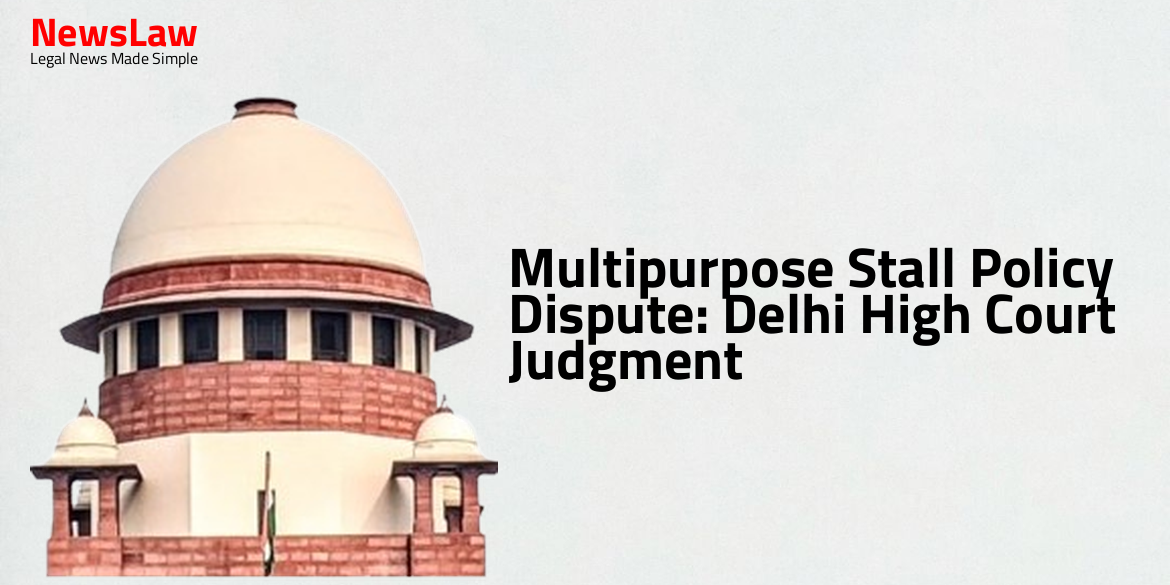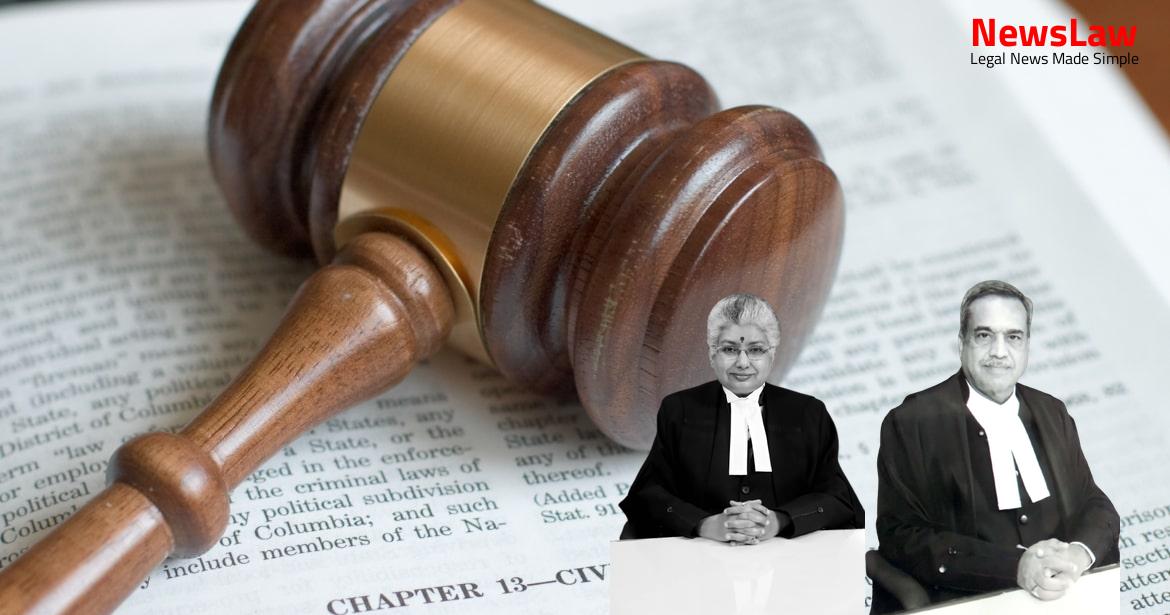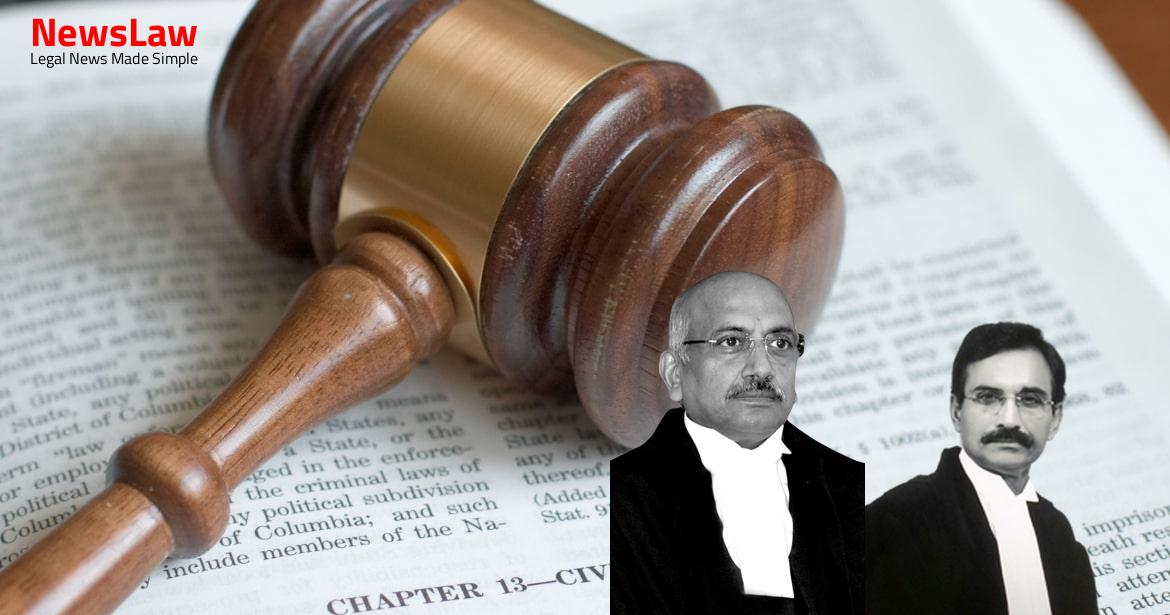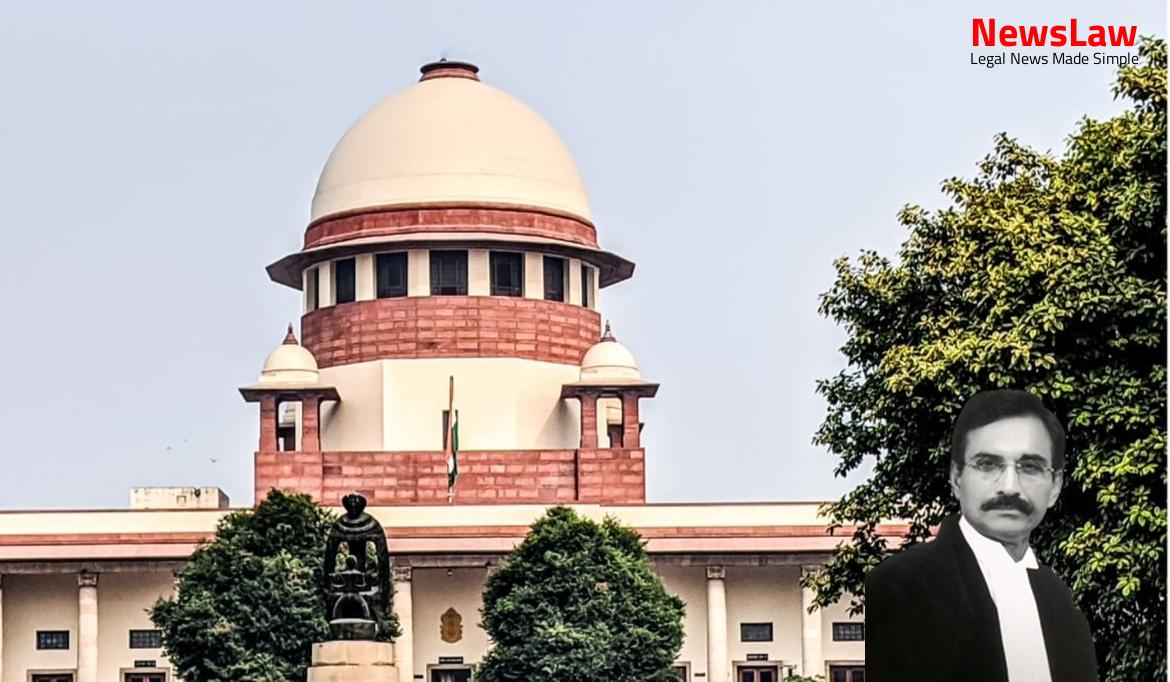The Delhi High Court recently ruled on a significant legal matter involving the Multipurpose Stall Policy, where the railway authorities and stall/trolley operators were at odds. The judgment delves into the intricacies of renewal rights and legitimate expectations in license agreements, providing clarity on the rights of parties involved. This case marks a crucial development in the legal landscape concerning stall/trolley operations at railway stations.
Facts
- Petitioner no.1 is running three MPS at Bareilly Railway Station.
- Petitioner no.2 is running one MPS at Moradabad Railway Station.
- Petitioner no.3 is running one MPS at Haridwar Railway Station.
- The petitioners were forced to convert their stalls to MPS in 2017 by the respondent (Northern Railway) in accordance with the Commercial Circular No 61 of 2017 (‘2017 Policy’).
- The petitioners and respondent no.2 have entered into Master License Agreements to solidify the license arrangement.
- The agreements for petitioner no.1, petitioner no.2, and petitioner no.3 were dated 31.03.2021, 29.10.2021, and 17.08.2020 respectively.
- The agreements stated a tenure of five years from the date of conversion of the stall/trolley till 21.12.2022, with no provision for extension or renewal.
- Due to a force majeure event, the tenure was extended by 68 days until 27.02.2023 as per the letters from respondent no.2.
- The petitioners were directed to vacate their MPS by 27.02.2023 as per the letters sent by respondent no.2.
- The Master License Agreements and the extension letters have been challenged by the petitioners in W.P.(C) 2501/2023.
Arguments
- Petitioners’ licenses have expired by efflux of time and they have no right to compel the respondents to extend the License.
- 2017 Policy is legally sound and non-arbitrary, applicable universally to stall/trolley owners without discriminatory treatment towards the petitioners.
- Karnataka High Court dismissed a similar challenge against the 2017 Policy in a previous judgment.
- Petitioners’ licenses are governed by the 2017 Policy which clearly states no renewal or extension of license.
- Petitioners cannot contest the 2017 Policy upon expiry of their license after availing its benefits.
- Paragraph 1744 of Indian Railways Commercial Manual is claimed to be violative of certain sections of the Railways Act.
- Petitioners have been benefited by the new policy operational for 5 years but are now challenging it.
- Petitioners have a legitimate expectation for license renewal based on past practices and lack of tender participation requirements.
- Respondents are alleged to be renewing licenses for small catering units but not for small miscellaneous/multipurpose stalls/trolleys, deemed as arbitrary.
- Petitioners claim economic duress and coercion led to their conversion of stalls to MPS units.
- Maintainability of petitions is questioned based on exclusive jurisdiction and arbitration clauses in license agreements.
- 2017 Policy aims to prevent monopolization of licenses and provide equal opportunities during re-tendering processes.
- The petitioner signed a contract for a non-renewable period of five years with eyes wide open.
- The petitioner cannot now claim ignorance or go back on the contract terms after enjoying its benefits.
- The judgment cited by the petitioner was related to Catering Policy and not applicable to the current case involving Multipurpose Stall Policy.
- The court rejected the petitioner’s attempt to seek renewal under old policies after the contract’s completion.
- The petitioner’s contract was not under Catering Policy but a different policy altogether.
Analysis
- The petitioners’ contention of being compelled to convert their stalls/trolleys to MPS is deemed untenable.
- Clause 5 of the 2017 Policy explicitly states no extension or renewal of MPS units; participation in fresh bids is allowed.
- Claim of ‘legitimate expectation’ for license renewal lacks merit.
- Doctrine of legitimate expectation cannot be claimed as a right, but can be used only when the denial leads to Article 14 violation.
- Courts cannot legislate policy decisions; railways have the prerogative to decide based on prevailing circumstances.
- The licenses are non-renewable as per the express terms of the 2017 Policy.
- Zonal Railways extended license period due to force majeure (lockdown) circumstances.
- Territorial jurisdiction for issuing a writ determined based on authority location, not cause of action.
- Reservation in allotment is maintained to rectify disparities and ensure opportunities for marginalized groups.
- Interference with railways’ license renewal discretion would inhibit fresh opportunities for other deserving operators.
- Relevant extract from the judgment is provided as follows:
’55. [Original Names] filed the petition seeking relief.’ - The Karnataka High Court rejected a challenge to the 2017 Policy in a case titled Gulfeeza Begum v. Union of India.
- The court emphasized that relaxation in the policy in the past does not create an entitlement for future relaxations.
- A writ of Mandamus cannot be issued to direct framing of laws or rules.
- Mandamus is applicable for enforcement of fundamental or statutory rights.
- Courts can declare a law as unconstitutional.
- Judicial review of a policy decision differs from mandamus to frame policy.
- Legitimate expectation does not always guarantee relief and can be negated.
- Public bodies cannot decline to renew a license arbitrarily.
- Courts interpret laws involving a creative process.
- Individual license agreements between the petitioner and railway authorities contain an arbitration clause.
- The 2017 Policy, applicable to licensees without a formal license agreement, also includes an arbitration clause.
- Petitioners can invoke the arbitration clause if they are aggrieved by insufficient extensions due to Covid-19 or wish to claim damages.
- Petitioners are free to initiate appropriate proceedings through the arbitration clause if needed.
Decision
- Existing stalls/trolleys have the option to convert into Multipurpose Stalls (MPS) by paying the quoted License Fee.
- No new allotments or extensions for existing stalls/trolleys will be done, all existing stalls allowed for conversion into MPS.
- A 5-year tenure will begin from the date of conversion to MPS for existing licensees.
- A 3-month period granted for existing licensees to vacate stalls after opting for conversion to MPS.
- Renewal of License process initiated by petitioners for conversion of stalls/trolleys to MPS.
- Court finds no merit in the petitions and dismisses them, keeping rights and remedies of the petitioners open.
- All pending applications disposed of, maintaining the maintainability of petitions and adjudicating on common issues for Northern Railway.
Case Title: ANKIT JAIN & ORS. Vs. UNION OF INDIA & ORS. (2024:DHC:4452)
Case Number: W.P.(C)-14003/2023



